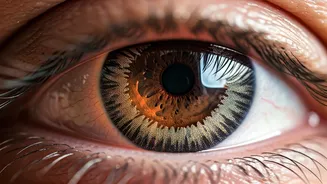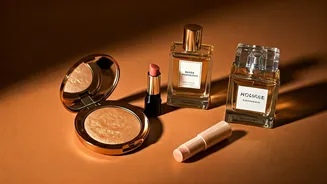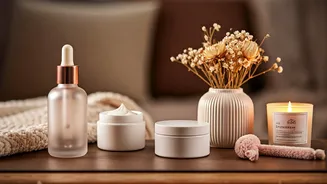Makeup's Hidden Dangers
Eye makeup, while enhancing appearance, can silently compromise eye health. The delicate tear film, crucial for lubricating and protecting the eyes, is susceptible
to disruption from makeup. Mascara, eyeliner, and eyeshadow can introduce irritants and potential contaminants. Regular use of such products increases the risk of eye infections and irritation. Furthermore, the application and removal of makeup can lead to physical trauma to the sensitive eye area. It is important to be mindful of the products used and the methods of application to minimize these risks. Choosing hypoallergenic products and following proper hygiene practices can help mitigate some of these problems. Therefore, awareness and caution are paramount to preserve the health and vitality of the eyes in the long term. These practices include proper cleaning of makeup brushes and tools.
Tear Film's Vulnerability
The tear film, a complex layer that coats the eye's surface, is critical for clear vision and eye comfort. This protective layer is easily disrupted by makeup, leading to dry eyes, irritation, and potentially more serious conditions. Makeup can interfere with the tear film's stability, causing it to evaporate more quickly. Moreover, certain cosmetic ingredients can be toxic to the delicate tissue of the eye, worsening dryness and discomfort. Using waterproof products can sometimes intensify these problems, as their removal often requires harsh scrubbing, further disturbing the tear film. Careful makeup selection and application techniques, along with regular eye care, are therefore crucial to protecting this vital layer. Consider consulting with an ophthalmologist or eye care specialist for personalized advice on makeup usage.
Contact Lens Hazards
Contact lenses, while offering convenience, come with inherent risks, especially concerning hygiene and potential microbial contamination. Improper handling, storage, and cleaning practices can create a breeding ground for bacteria and fungi. These microorganisms can cause serious eye infections, including keratitis, which may lead to vision loss if not promptly treated. Wearing lenses for extended periods, especially overnight, amplifies these risks. Following your eye doctor’s instructions carefully and regularly replacing the lens cases are critical to preventing infections. Contact lens users should be extremely cautious about touching their eyes with unwashed hands, as this is a primary route for introducing microbes. Proper care and vigilance are vital to maintain eye health while using contact lenses, and any symptoms of discomfort or visual changes must be addressed immediately.
Hygiene and Contamination
The risks of contamination from shared cosmetics and beauty salon practices cannot be understated. Sharing eye makeup, like mascara and eyeliner, can quickly spread bacteria and viruses. Beauty salons must maintain high hygiene standards to avoid cross-contamination. Dirty brushes and applicators, and using expired or poorly stored products, escalate the dangers of infection. Infections from shared makeup can range from mild irritations to severe conditions, potentially damaging vision. Users need to be mindful of what products are being used, and the tools they are using, and where they are getting their application done. Always request new applicators and tools. Choosing reputable salons that adhere to stringent sanitation protocols is essential, as is avoiding the use of any products that seem unsanitary.














